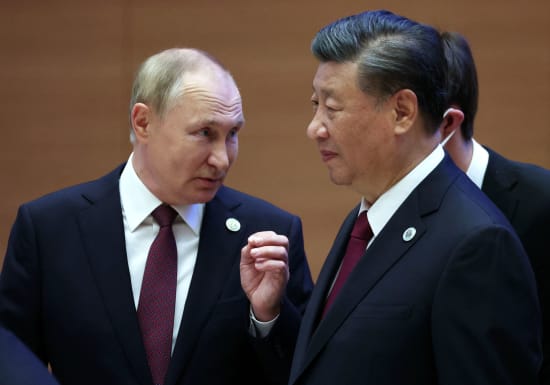A Dismal Year for Autocrats Raises Questions for NZ
Foreign Affairs
Poor decision-making this year by autocratic leaders has led to greater instability in their political systems, impacting New Zealand’s external environment. While we cannot control the weaknesses in other countries’ political systems, Nicholas Khoo argues it is time to ask some tough questions.
The year 2022 has been dismal for one would-be autocrat, Donald Trump, and two actual autocrats, Vladimir Putin and Xi Jinping.
Russia’s backfiring war on Ukraine, China’s enacting tight Covid restrictions and then easing them, and repeated Republic party election losses in the US have proved that no political system is without weakness.
New Zealand needs to soberly consider these developments and chart a path forward in 2023.
In the US, Donald Trump’s formal mid-November announcement of another run for the presidency in 2024 has been upended by a series of self-inflicted blows.
READ MORE:
* PM has summit words for Russia
* The China question complicating NZ’s Russia response
First, high-profile candidates in swing states backed by Trump such as Mehmet Oz (Senate, Pennsylvania), Herschel Walker (Senate, Georgia), Doug Mastriano (Governor, Pennsylvania), and Kari Lake (Governor, Arizona) lost their electoral contests in November.
Next, the ex-president scored a massive own goal by calling for the suspension of the US Constitution on his self-styled ‘Truth Social’ media platform on 3 December.
Finally, on December 6, two Trump-operated companies were convicted on all 17 counts in a tax-fraud case in New York City, with prosecutors highlighting a “culture of fraud and deception”.
One wonders what it’ll take for the penny to drop for the Republican Party.
A political party in a liberal democratic system cannot implement its agenda if it keeps failing to win elections.
In 2020, the Democratic Party won elections for the Presidency, the House of Representatives, and the Senate. While the Republican Party subsequently won back the House in 2022, this is small beer compared to the Democratic Party’s continuing control of the Senate and the Presidency.
Trump’s mate in Russia, Vladimir Putin, is also in dire straits.
Putin’s self-styled “special military operation” against Ukraine has morphed into a massive own goal. In mid-November, the Ukrainian military reclaimed most of Kherson Oblast, marking its biggest victory to date. It is Russia’s third major blow, following withdrawals from Northern Ukraine in April and Kharkiv in September.
Commenting on these developments, Samuel Charap, an expert at the RAND Corporation in the US noted: “Russia’s strategic defeat is already a thing. That’s done.”
He highlights the “astonishing damage to their military capabilities, their international reputation, their economy, their capacity to rearm. Russia has weakened itself in the last nine months more than any US policy could have done.”
The year 2022 was also the year that the Xi Jinping regime’s draconian Covid policy succeeded in further complicating the Chinese Communist Party’s relationship with Chinese society.
The “all-out people’s war to stop the spread of the virus” referenced at the 20th Communist Party Congress in October has been repudiated by country-wide protests in November. This has triggered what is arguably the biggest surprise of the year, the announcement of a significant relaxation of China’s Covid policy on December 7.
That said, having rejected the idea of using foreign-made vaccines in favour of less effective indigenous vaccines, a successful Chinese Communist Party-led path out of this self-inflicted crisis is far from guaranteed.
As Professor Andrew Nathan from Columbia University in the US has pointed out in the Wall Street Journal, “meeting the popular demand to relax the zero Covid regime runs the risk of a pandemic wildfire that could cause millions of deaths – the very outcome the regime all along sought to avoid”.
Professor Nathan notes that even assuming a highly effective Chinese mRNA vaccine is developed, there will need to be a “forcible vaccination campaign, along with a new propaganda line that normalises a certain level of transmission and death. This path is full of risk for the regime”.
The travails experienced by Trump, Putin, and Xi highlight the important point that all political systems have weaknesses.
While Russian political weakness may not be a direct problem for New Zealand, Chinese and US weakness clearly is.
The failure of China’s Marxist-Leninist political system to internalise the lessons of the SARS crisis of 2002-03 has led to a more serious pandemic from 2019-present. This has directly impacted every New Zealander’s life. It has also required New Zealand to run a budget deficit that will take many years to repay.
And the inability of the Biden administration to create a robust trade policy that approximates the Obama administration’s unratified Trans-Pacific Partnership policy incentivises us into a closer economic relationship with China. Diversification of New Zealand’s trade partners is therefore harder to achieve.
New Zealand has no control over the weaknesses in the Chinese and US political systems. But what we can control is our response to questions generated by their weaknesses.
The same principle applies to our foreign policy more generally. And having control over our foreign policy has to include questioning its fundamental tenets.
Some obvious questions arise.
Has our investment in multilateral international institutions been sufficiently repaid?
Does the Anzac alliance require investment?
Should new alliances be considered?
Alternatively, should we dispense with alliances to bolster our security?
How would such a posture of nonalignment be operationalised?
These are tough questions for tough times.




